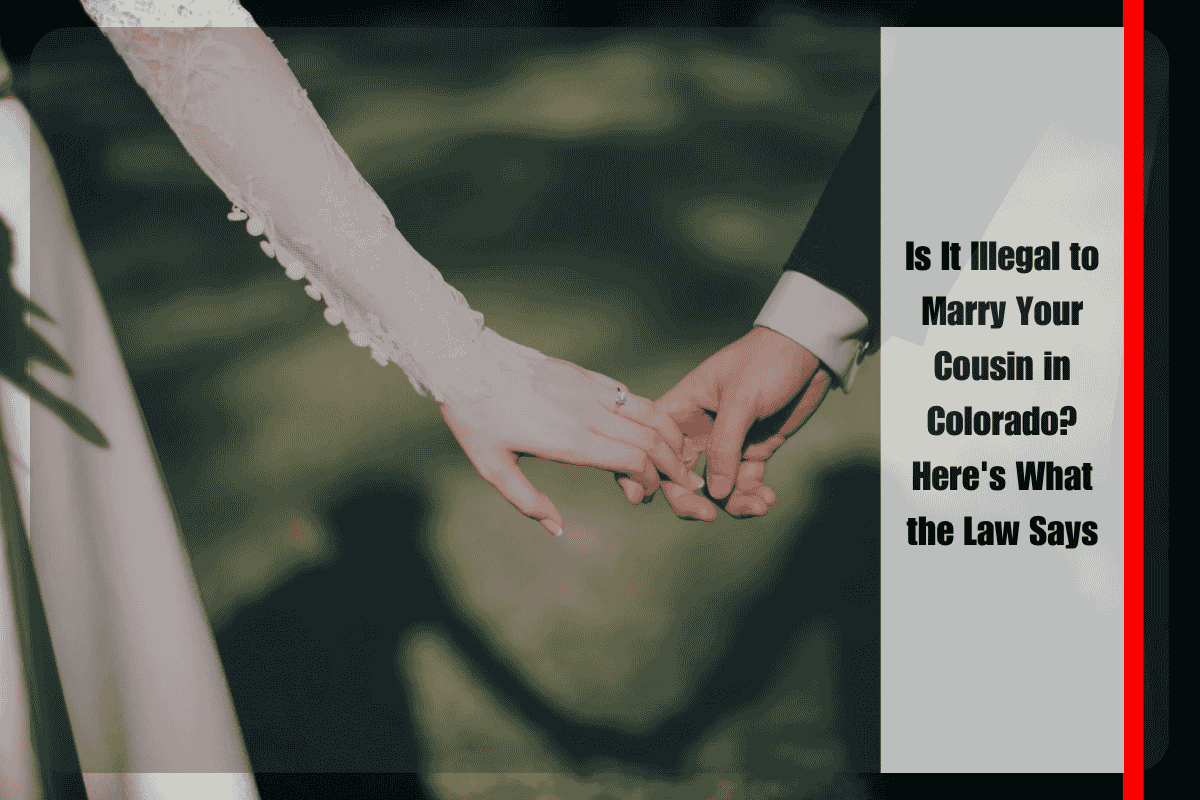It is legal to marry your first cousin in Colorado. The state’s marriage laws, as outlined in Colorado Revised Statute Section 14-2-110, specify certain familial relationships for which marriage is prohibited, but cousins are not included in these restrictions. According to multiple legal and informational sources, first cousins are allowed to marry without any additional requirements or conditions, making Colorado one of the minority states in the U.S. where such a marriage is explicitly legal.
The law in Colorado does prohibit marriage between close blood relatives such as ancestors and descendants (which would include parent-child or grandparent-grandchild), siblings (including half-siblings), and between an uncle and niece or an aunt and nephew, except for designated cases in aboriginal cultures. However, none of these bans apply to first cousins, meaning there are no legal barriers in the state for two first cousins wishing to get married.
This legal stance makes Colorado a destination for individuals from states where cousin marriage is illegal or restricted. In many U.S. states, marriage between first cousins is either not permitted at all or is only permitted under specific circumstances, such as both parties being above a certain age, or proof of infertility or genetic counseling is provided. For example, in Arizona, both cousins must be over 65 or show proof of infertility, while Illinois requires both to be over 50 or show proof of infertility.
Colorado, by contrast, does not impose any such conditions. There are also no distinctions made between whole-blood or half-blood cousins, and the gender and reproductive capacities of the individuals do not affect the legality of the union. The legal requirements for any marriage in Colorado include being over 18 (or over 16 with parental consent) and not being already married to someone else or in a civil union—rules that apply to all marriages, not uniquely to cousin marriages.
Marriages that fall outside the permitted categories—such as those involving siblings or direct ancestors and descendants—are considered void and can be annulled. But a legal marriage between first cousins in Colorado is subject to the same rules and protections as other marriages. There is no need for special documentation, no additional scrutiny by the court, and no requirement for genetic counseling or proof of infertility.
Although cousin marriage is legal, it can still be socially contentious or even taboo among some communities in Colorado and elsewhere in the United States. Historically, the legality and acceptability of cousin marriage have varied widely across different eras and cultures, but today, Colorado stands with a small group of states—such as California, New York, and Virginia—in allowing first cousins to marry freely.
There is nothing in Colorado law that prohibits or restricts marriage between first cousins. Those wishing to marry a cousin in Colorado may do so by following the same procedures required for any other legal marriage in the state, without fear of criminal penalty or annulment based solely on their familial relationship.
Sources
[1] https://kekbfm.com/colorado-marry-your-cousin/
[2] https://cardozolawreview.com/the-unconstitutionality-of-state-bans-on-marriage-between-first-cousins/
[3] https://95rockfm.com/colorado-marry-first-cousin/
[4] https://en.wikipedia.org/wiki/Cousin_marriage
[5] https://www.graham.law/blog/marry-your-cousin-colorado-family-marriage/












